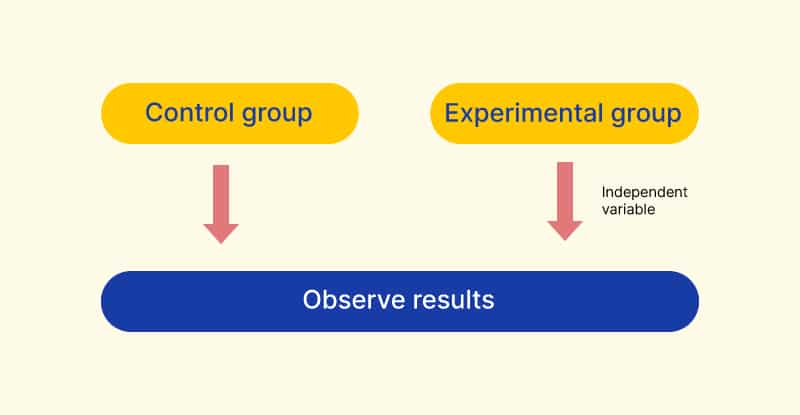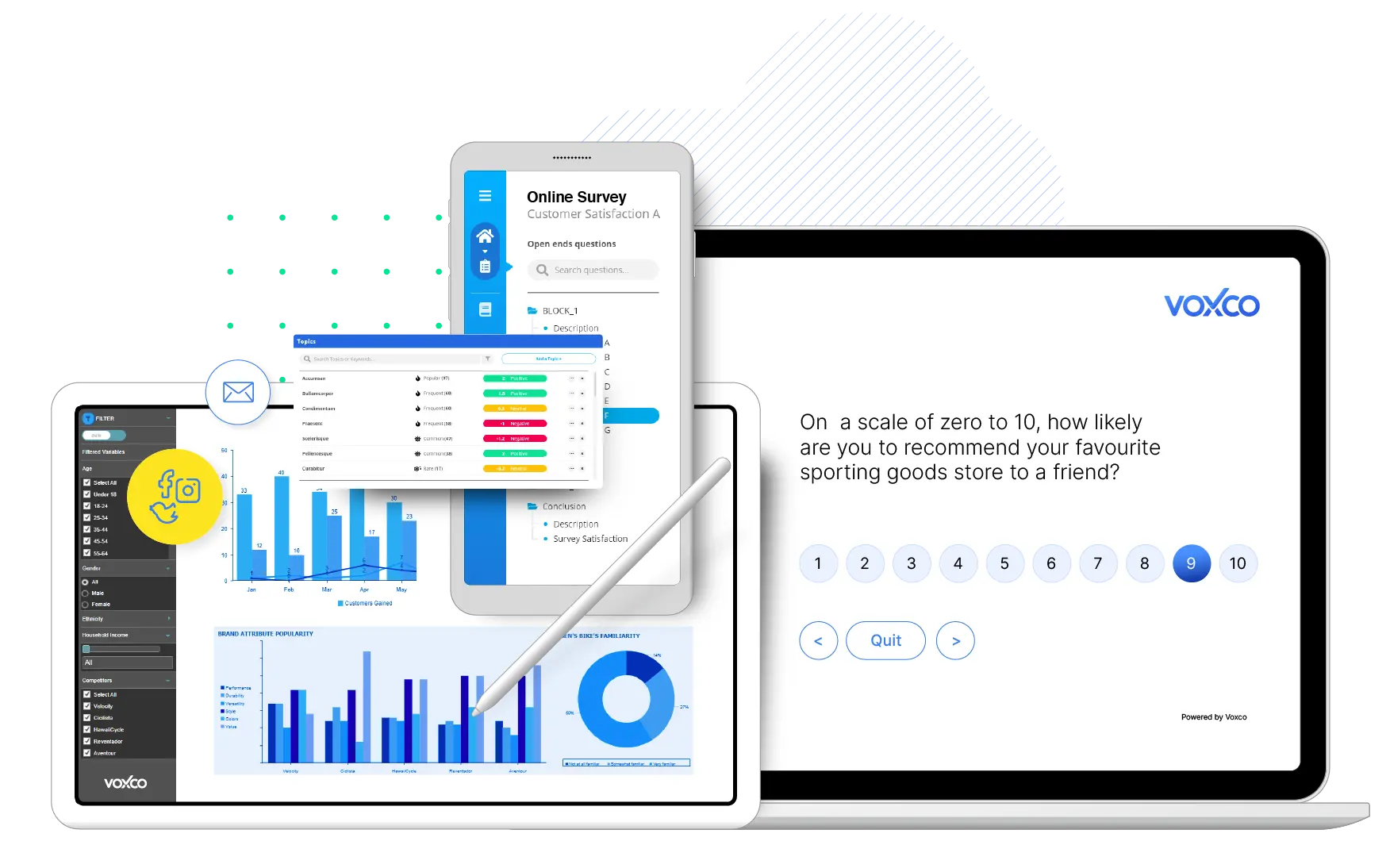what does it mean to perform a controlled experiment

What is Controlled Experiment?
Transform your insight generation process
Use our in-depth online survey guide to create an actionable feedback drove survey process.
What is a Controlled Experiment?
A controlled experiment is an experiment where the independent variable is systematically manipulated while its effects on the dependent variable are measured. Furthermore, the presence of any extraneous variables are accounted for and are controlled. In controlled experiments, all variables are held constant, disallowment the independent variable that is manipulated.
Why is Control Important in Experiments?

Control provides experiments with internal validity, making the findings of the cause-and-upshot relationship found in the report more credible and trustworthy. Additionally, control helps curb or eliminate the impact of inapplicable variables.
These are the variables that are not being studied in the experiment but may have an effect on the variables that you lot are studying. When left uncontrolled, extraneous variables tin result in inaccurate conclusions and findings of the relationship between the variables being studied, threatening the study's internal validity.
Different Control Procedures used in Experimental Research
Control can be established past meticulously standardising the unabridged data collection process. This includes standardising the environment wherein the experiment is conducted, the materials used, the temperature of the surround etc. The simply variable that should exist inverse/manipulated is the independent variable.
Additionally, whatever inapplicable variables that can bear upon the findings of the study should be eliminated or identified and measured (and so that they can be accounted for in the analysis portion of the inquiry).
Let'due south take a look at a few unlike command procedures used in experimental research:
Control Groups
Experimental pattern usually involves two groups; the treatment group and the control group. These groups are created past dividing the sample into two split groups using random assignment to avoid bias. Hence, these groups are identical, barring that the handling group receives the treatment being tested while the control group does not.
Control groups allow researchers to compare the findings of two identical groups then that any changes identified betwixt both groups can exist attributed to the handling administered.
Double-Blind Study
Double-blind studies involve keeping researchers and participants unaware of who is a function of the treatment grouping and who is not. This helps eliminate any potential biases that could be caused due to behavioural changes that could issue from researchers and participants being enlightened of who is in which grouping.

Matching/Subgroup Matching
Matching in experimental blueprint refers to a technique in which a participant in the experimental group is compared to a participant in the control group. Participants are paired based on how similar they are in regard to certain characteristics. Matching allows researchers to study similar pairs so that whatever differences between participants in the pair tin exist attributed to the handling lonely.
Subgroup matching is similar to matching, the difference being that subgroup matching involves sub-dividing groups into smaller groups based on like characteristics, while matching involves the use of individual particpants. The subgroups are then matched beyond groups.
ANCOVA: Analysis of Covariance
ANCOVA is a statistical process used in experimental enquiry to equate groups. Information technology involves matching groups by equating them to confounding variables or covariates. It is a useful method for analyzing the difference between the treatment grouping and the control group.
Random Assignment
Random assignment refers to when elements from the sample group are divided into two groups, the treatment group and the control group, using consummate randomization. This helps ensure that any extraneous variables that could be caused by participants are evenly distributed among each group, allowing for a fair and unbiased comparing.
The Limitations of Controlled Experiments
Although controlled experiments are the most credible way to test causal relationships, it does take a few limitations:
Event of Inapplicable Variables
Experiments rely on control to ensure high internal validity of results. However, information technology is nigh impossible to maintain control over all inapplicable variables present in an experiment that involves human participants. This means that well-nigh studies accept certain extraneous variables that aren't deemed for, making the findings less reliable.
Explore all the survey question types
possible on Voxco
Ethical Concerns
At that place are certain studies that cannot exist carried out using controlled experiments due to ethical reasons. For instance, let'southward say you want to behave a study that aims to find out whether or non children who are abused are more likely to abuse their children in the future. Although this is an important and interesting question to research, it cannot be answered using a truthful experiment.
Depression External Validity
External validity refers to the generalizability of the findings of a written report: whether or not the findings of your study are applicable to the larger population, across the sample of the report.
Controlled experiments oftentimes have high internal validity as a result of the command of variables exercised throughout the experiment. However, it is this control that can cause the study to have low external validity every bit a controlled surround is very unlikely to reflect the real-world setting which has many extraneous variables at play, making the findings less generalizable. Therefore, at that place is oft a trade-off betwixt internal and external validity in studies; those with high external validity ordinarily accept depression internal validity, and vice versa.

Source: https://www.voxco.com/blog/controlled-experiment/
0 Response to "what does it mean to perform a controlled experiment"
Post a Comment